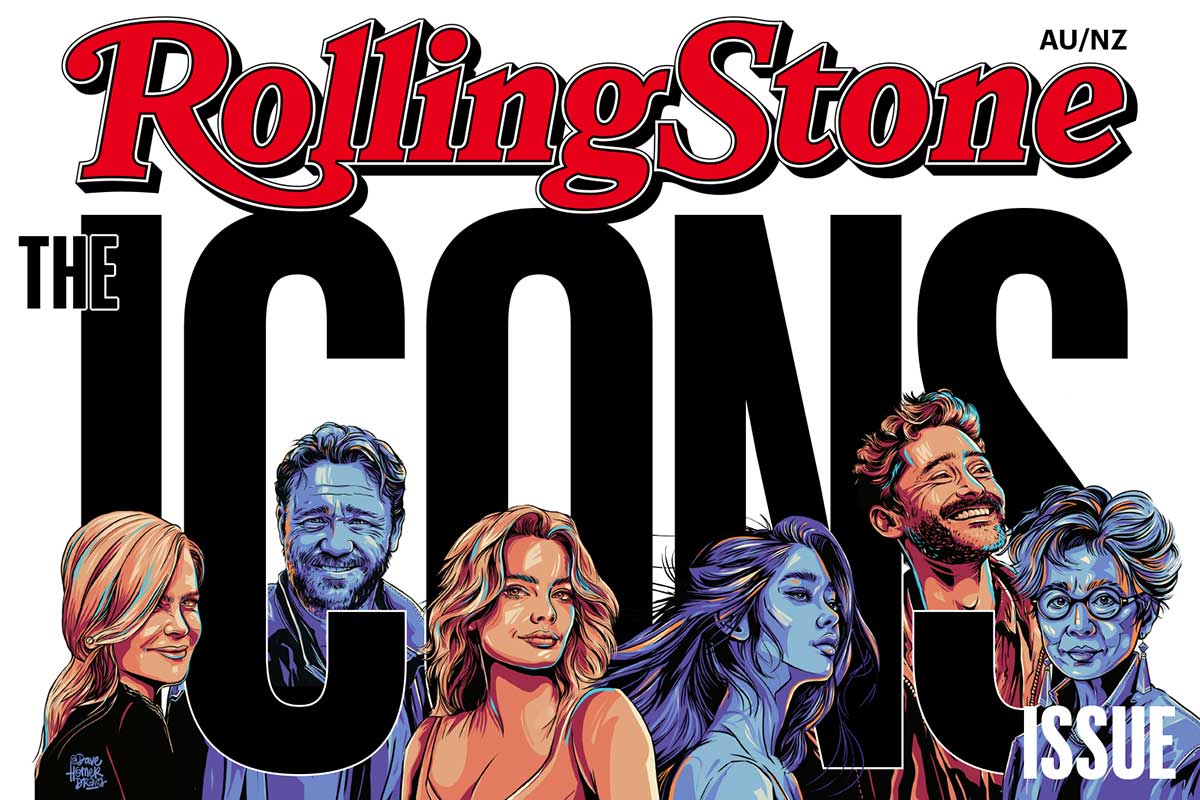Rolling Stone’s Icons Issue: An Antipodean Odyssey
What makes a celebrity an icon? It’s not just talent; it’s a magnetic charisma, enduring influence, and that unmistakable Antipodean spirit that sets them apart. In this exclusive collector’s edition of Rolling Stone AU/NZ, we embark on a journey across the Southern Hemisphere to unveil the 50 most iconic stars of Australia and Aotearoa.
In the realm of music, we delve deep into the anthems that have resonated with Aussies and Kiwis for generations. From a rock god who’s electrified stages to a pop princess who’s touched our hearts, we explore the artists who’ve woven themselves into the fabric of our unique pop culture — a culture that continues to cross borders.
The silver screen has its own share of luminaries, those who’ve left an indelible mark on our screens, and in many cases, around the world. We celebrate the actors who’ve made us laugh, cry, and question, as well as those whose career-defining performances have become timeless classics.
And let’s not forget the comedians who’ve had us in stitches, revealing a unique and homebrewed brand of humour, reflective of our local sensibilities. Their laughter echoes through the comedy clubs and airwaves, connecting us all in shared hilarity.
These names of these 50 icons are etched into the cultural history books — here and abroad — and continue to inspire the next generation of icons.
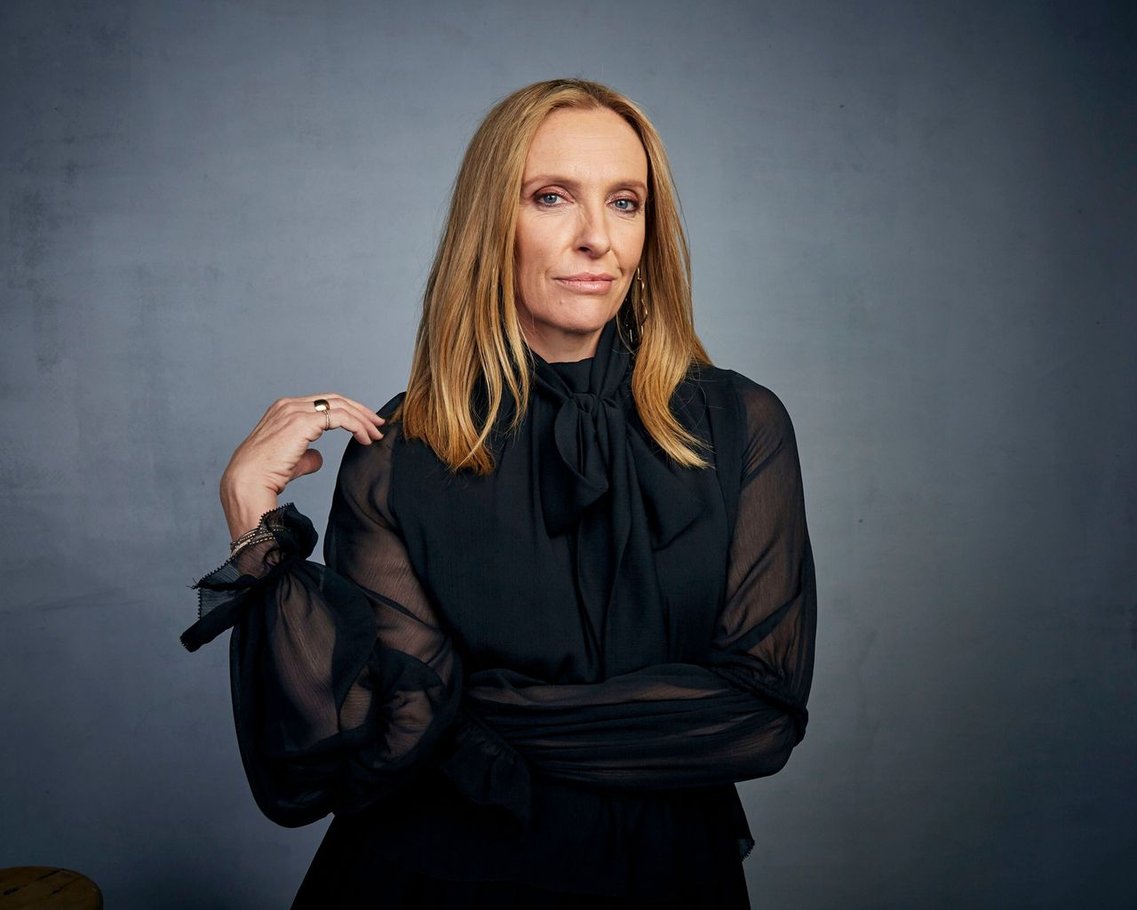
Toni Collette
By: Kasumi Borczyk
With arguably the greatest emotional range in Hollywood, every role that Toni Collette touches turns to cinema magic.
In her breakout role in Muriel’s Wedding, Toni Collette famously gained eighteen kilograms in seven weeks to play the part of social outcast Muriel Heslop in one of the campiest depictions of Bogan Australia to ever grace the silver screen.
In the Sixth Sense, her first major Hollywood role, she plays the mother of Cole Sear in a psychologically-charged, award-winning performance. Then in The United States of Tara she plays a suburban housewife with dissociative identity disorder, acting multiple personas within the one character. Famous for her diverse filmography, her versatility and her willingness to push her acting towards the extreme ends of the emotional spectrum, she has continually moved audiences in genres as varied as horror to comedy to drama.
Often playing emotionally damaged and deeply neurotic mothers — Collette has an unsurpassed physical expressiveness and a physicality that allows a thousand different emotions to pass through her face in the span of a few moments. More recently, Collette has returned once again to the forefront of a new-wave of contemporary horror with Ari Aster’s Hereditary, stealing the show with her exploration of grief and existential despair. A committed and visionary performer, Toni Collette claims, “there are actors who are really fantastically talented at being natural on screen and appearing to be themselves but I like the challenge of becoming somebody else”. And true to her word, Collette embodies every role — from perfecting her character’s accent to appropriating their tortured mannerisms. Often listed as an influence to others, she is in the truest sense, an actor’s actor, somebody who is willing to transform herself entirely into every character she plays.
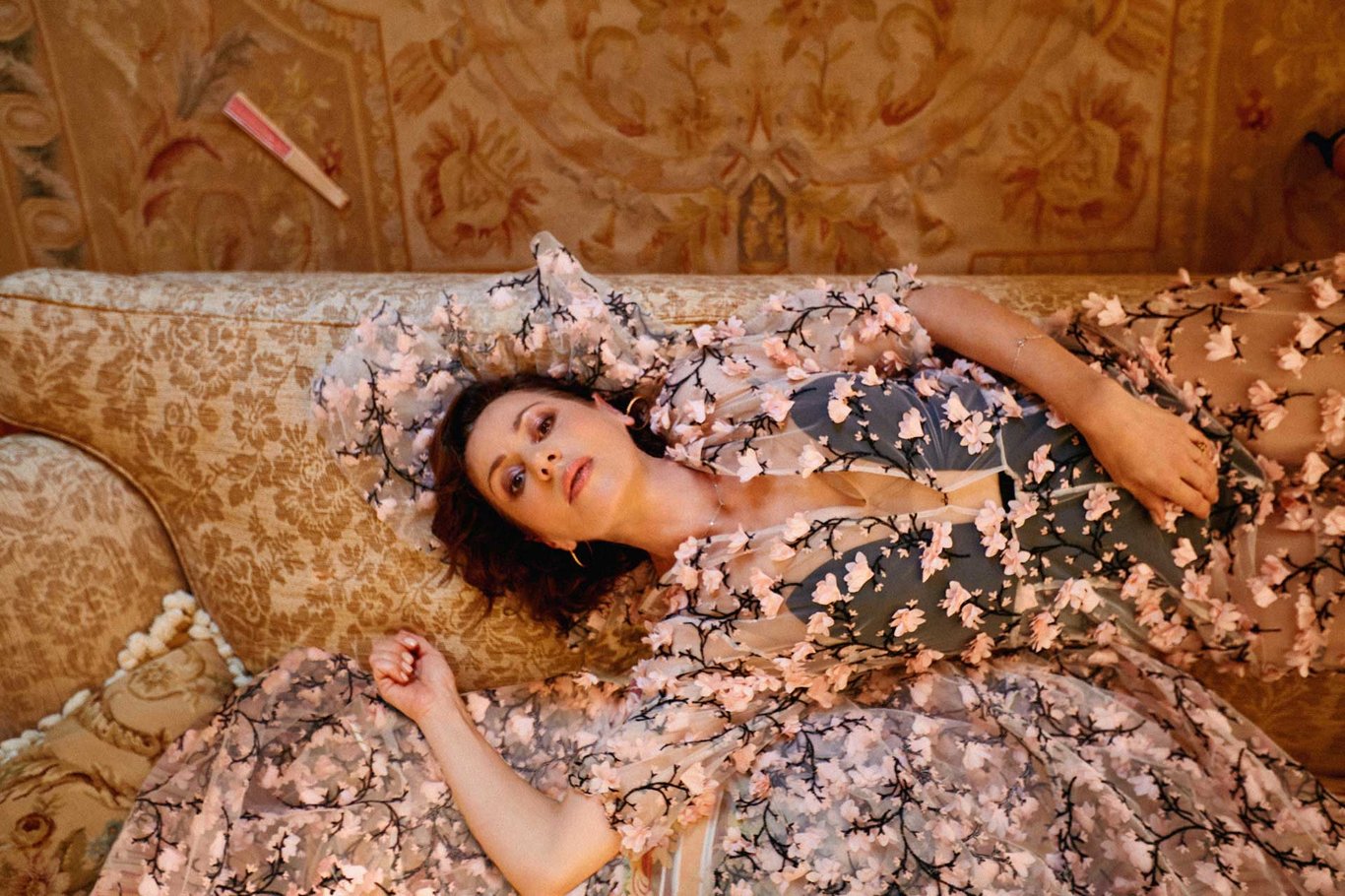
Tina Arena
By: Kasumi Borczyk
Darling of Australia’s music industry, Filippina Lydia “Tina” Arena is one of the country’s highest selling and most popular artists.
A success story of social mobility, Tina Arena was raised in Keilor East by her Sicilian immigrant parents. Acquiring a natural ear for music from her family’s record collection, Arena got her big break as a contestant of Young Talent Time in 1974, going on to become its longest-running permanent cast member in 1976 — at a time when representation of ethnic minorities on national television was scarce.
Affectionately nicknamed “Tiny Tina”, Arena became a household name, known for her crystal clear vocals and exceptional range. Owing to an age-limit contract, Arena left the show at fifteen whereupon she embarked on a rocky road to adulthood working as an insurance clerk, singing advertising jingles, and touring the pub and club circuit to only minor acclaim. It wasn’t until the recording of her second solo album Don’t Ask, that Arena relaxed into a more mature sound, co-writing and producing six hit singles “Chains”, “Sorrento Moon (I Remember)”, “Heaven Help My Heart”, “That’s The Way A Woman Feels” and a cover of Maria McKee’s “Show Me Heaven”.
Don’t Ask remains her most successful album to date — certified ten-times platinum by ARIA — and held the record for the highest-selling album for an Australian female singer for almost a decade (until Delta Goodrem’s Innocent Eyes). Known for her ballads that blend elements of RnB and pop, Tina Arena’s pitch-perfect voice has continued to charm listeners for decades. As a multilingual powerhouse, Arena has recorded and performed in English, Italian, Spanish and French, earning her an Order of National Merit in France and a member of the Order of Australia for her service to the music industry.
A mainstay of the arts scene, Tina Arena has proven herself to be one of the country’s most versatile and world-class performers.
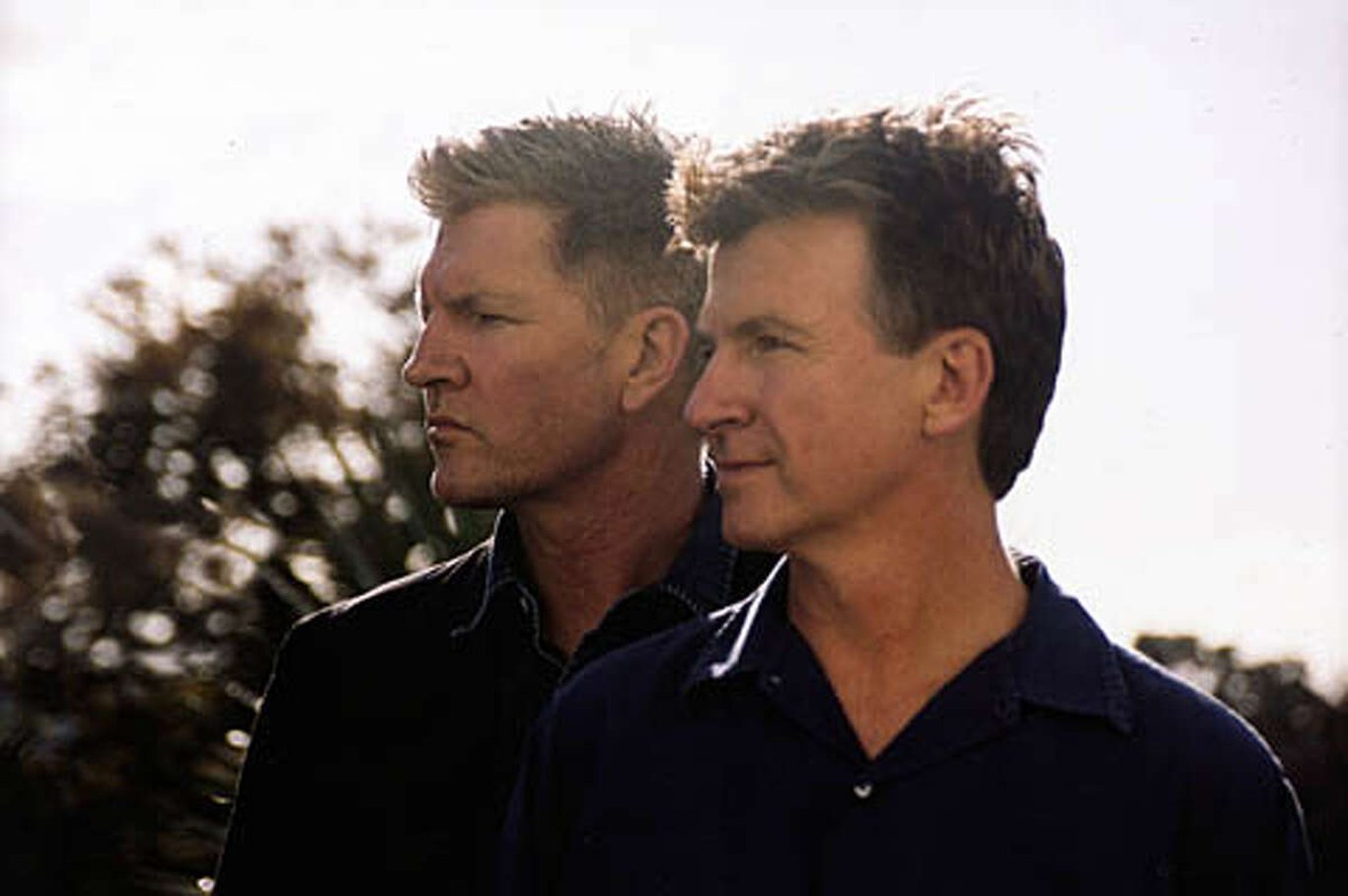
The Finn Brothers
By: Sosefina Fuamoli
Darling of Australia’s music industry, Filippina Lydia “Tina” Arena is one of the country’s highest selling and most popular artists.
A success story of social mobility, Tina Arena was raised in Keilor East by her Sicilian immigrant parents. Acquiring a natural ear for music from her family’s record collection, Arena got her big break as a contestant of Young Talent Time in 1974, going on to become its longest-running permanent cast member in 1976 — at a time when representation of ethnic minorities on national television was scarce.
Affectionately nicknamed “Tiny Tina”, Arena became a household name, known for her crystal clear vocals and exceptional range. Owing to an age-limit contract, Arena left the show at fifteen whereupon she embarked on a rocky road to adulthood working as an insurance clerk, singing advertising jingles, and touring the pub and club circuit to only minor acclaim. It wasn’t until the recording of her second solo album Don’t Ask, that Arena relaxed into a more mature sound, co-writing and producing six hit singles “Chains”, “Sorrento Moon (I Remember)”, “Heaven Help My Heart”, “That’s The Way A Woman Feels” and a cover of Maria McKee’s “Show Me Heaven”.
Don’t Ask remains her most successful album to date — certified ten-times platinum by ARIA — and held the record for the highest-selling album for an Australian female singer for almost a decade (until Delta Goodrem’s Innocent Eyes). Known for her ballads that blend elements of RnB and pop, Tina Arena’s pitch-perfect voice has continued to charm listeners for decades. As a multilingual powerhouse, Arena has recorded and performed in English, Italian, Spanish and French, earning her an Order of National Merit in France and a member of the Order of Australia for her service to the music industry.
A mainstay of the arts scene, Tina Arena has proven herself to be one of the country’s most versatile and world-class performers.
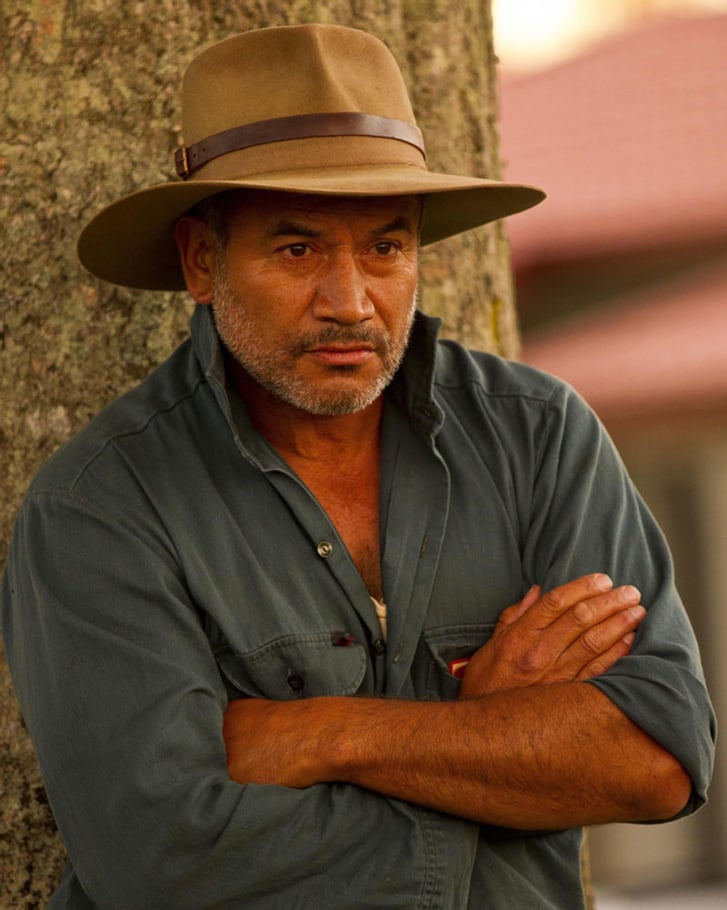
Temuera Morrison
By: Martyn Pepperell
“As elemental, charismatic and brutal as the young Marlon Brando.”
In a 1995 review of the postcolonial drama Once Were Warriors for The Chicago Sun-Times, the late great American film critic Roger Ebert described Temuera Morrison’s performance as Jake "the Muss" Heke as “as elemental, charismatic and brutal as the young Marlon Brando.” At the time, Morrison was best known in New Zealand for playing Dr. Hone Ropata on the local hospital soap opera Shortland Street. Soon enough, however, he was a Hollywood regular, appearing alongside silver screen stars like Pamela Anderson, Brando himself, and Sandra Bullock in Barb Wire, The Island of Dr. Moreau and Speed 2: Cruise Control.
In the Noughties, the MÄori actor took on the role of bounty hunter Jango Fett within the longstanding Star Wars franchise, beginning a twenty-year journey that led to him appearing and starring in The Mandalorian and The Book of Boba Fett for Disney+. In the 2010s, Morrison scored acting roles and voice work in Green Lantern, Moana, and Aquaman while continuing to work on a multitude of projects at home in New Zealand and nearby in Australia.
The nephew of the late great entertainer Sir Howard Morrison, Morrison grew up immersed in Kapa haka and the performing arts in Rotorua. At age eleven, he scored his first acting role in the children's adventure film Rangi’s Catch (1972). By the late eighties, he was a regular fixture on TV and movie screens across New Zealand, biding his time until Once Were Warriors’ critical success changed everything. Over the last forty years, Morrison has brought characters to life who have been deeply romantic, grappled with the ongoing effects of colonisation, navigated the intergalactic underworld, and parented a superhero. In that time, he’s earned his place in New Zealand as a national icon who is equally beloved by audiences around the world.
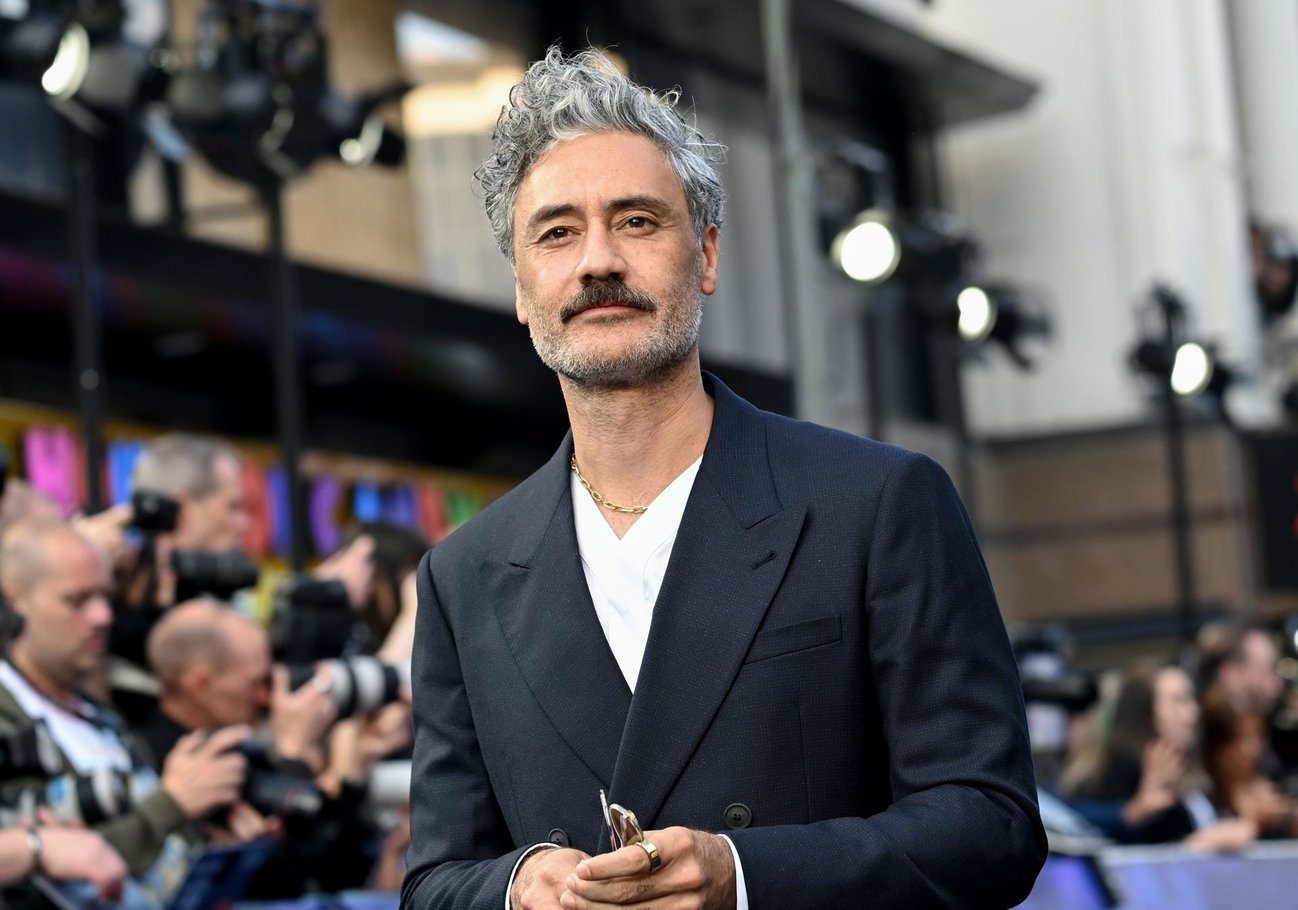
Taika Waititi
By: Martyn Pepperell
In 2017, the director, actor, and producer Taika Waititi broke out with Thor: Ragnarok.
His first full-length film for Marvel Studios arrived in cinemas around the world to a crescendo of commercial success and critical acclaim. By then, however, Taika had been working his way up in the worlds of comedy, film and television for close to two decades. For this talent from the bottom of the globe, Ragnarok was a hard-won coronation moment.
A MÄori Jew who grew up between Wellington and Raukokore, a small town near the East Cape of the North Island, Waititi studied theatre and film at Victoria University before spending the Noughties and early-to-mid 2010s crafting sad but humorous short films and movies that revolved around life in New Zealand’s neglected small towns and breathtaking rural landscape. In the wake of the cult international success of Two Cars, One Night (2003) and Eagle vs Shark (2007), he began to break local box office records with Boy (2010) and Hunt for the Wilderpeople (2016), soon finding himself in the director's chair in Hollywood.
Following Thor: Ragnarok’s success, Waititi has continued to direct projects for Marvel and Disney, along the way winning the Academy Award for Best Adapted Screenplay for Jojo Rabbit in 2019. In the process, alongside Bret McKenzie and Jemaine Clement, whom he has long worked with, most notably on projects like Flight of The Conchords and the loser vampire comedy What We Do in the Shadows (2014), he has helped make deadpan Kiwi humour legible to a global audience.
In more recent years, Waititi’s also been involved in cult television shows like Reservation Dogs and Our Flag Means Death, married the UK singer-songwriter Rita Ora, and executive-produced projects from a new generation of film-makers. Always moving, he shows no signs of slowing down.
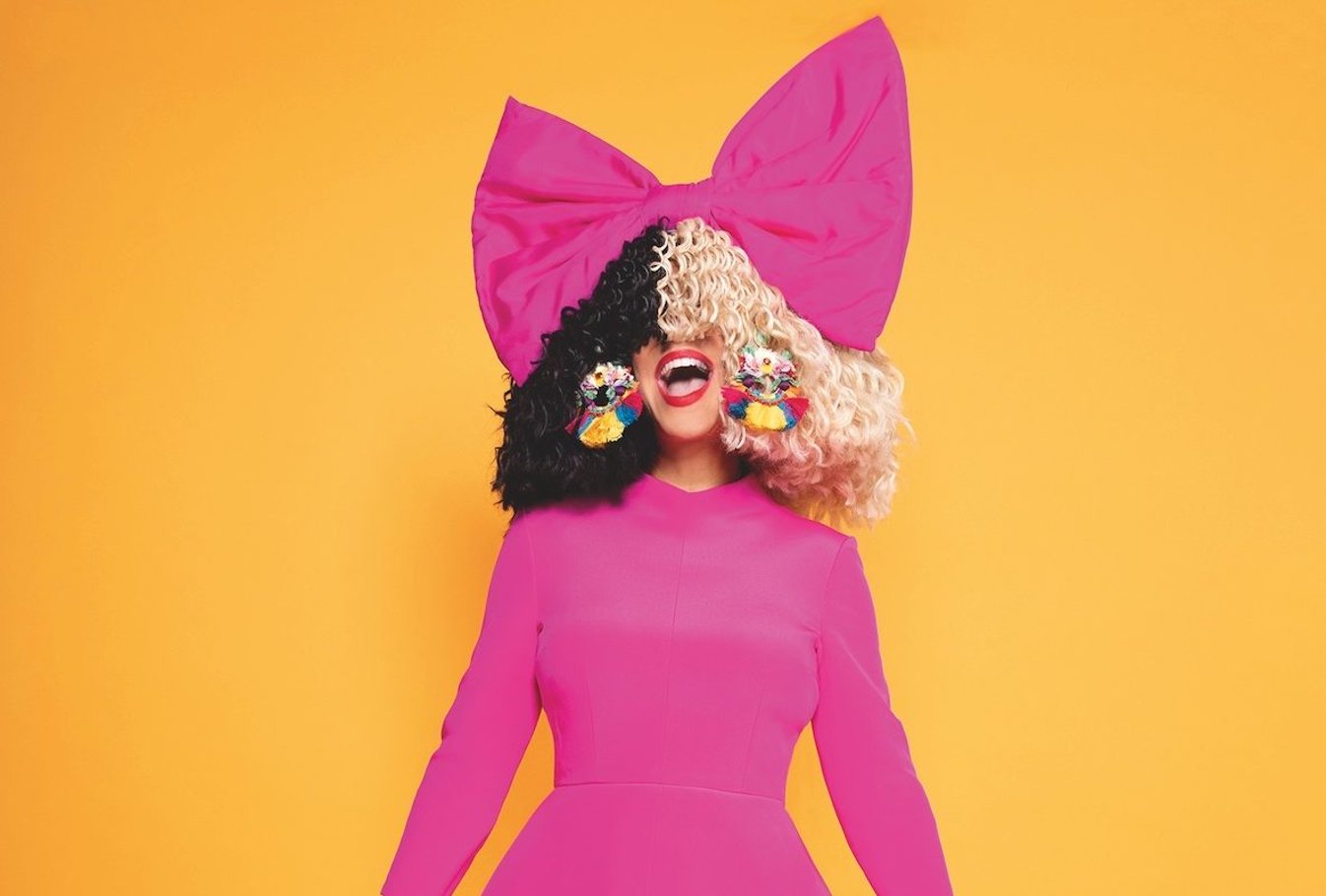
Sia
By: Alice Clarke
Sia is one of those rare celebrities who only needs one name.
Her voice (and name) are instantly recognisable the world over, and even if you’re not a fan of her unique style, there is a good chance you love at least one of the many songs she’s written for other artists.
Yet, despite having the kind of fame and career many people would kill for, Sia hates being famous.
Throughout her life Sia has struggled with addiction and poor mental health, suffering many losses at formative ages. The song that made her famous, “Breathe Me”, was written on a night when she tried to take her own life. Fortunately, she didn’t succeed in her attempt. The song went on to be used in the final scene of the popular US television show Six Feet Under.
But to reduce Sia to her tragedies is unfair. She is an extraordinary force for creativity. She has always been a writer and performance artist before all else. On a tour of Australia in 2009 she had live knitters instead of dancers while she performed in clubs around the country.
She’s known for wearing a giant wig that covers her face while singing live, at times outsourcing the rest of the performance duties to dance prodigy Maddie Ziegler; perfectly combining her dedication to performance art and her discomfort with the spotlight. True to form, she remains an invisible presence on the silver screen as well, having lent her voice to characters or soundtracks on over thirty films — including the film Music, directed by the singer-songwriter. It can then be about the work rather than the person, even though Sia the person is endlessly fascinating.
In an interview with The Guardian in 2016 she said, “Everybody in the entertainment industry is insecure. We have been tap-dancing our entire lives for your approval and you won’t meet anybody who is in the entertainment industry who isn’t a bit fucked in the head.”
Sia is sober now and has two children, who she adopted as they aged out of the foster care system. She lives in Los Angeles with her husband.

Sam Neill
By: Vivienne Kelly
Sam Neill isn’t done being an icon any time soon.
Think of your favourite Sam Neill film. For many, it will be the iconic and enduring original Jurassic Park from 1993. For others, it may be 1988's Evil Angels, for which he won the AACTA Award for Best Actor in a Leading Role for playing bereaved father Michael Chamberlain alongside Meryl Streep.
Then there’s the remarkable catalogue of work where he’s just ‘there’. That’s not to dismiss his work as undercooked or insignificant — it’s just that he’s been in so many things.
Do you remember that he played Governor Arthur Phillip in the harrowing 2005 local epic The Incredible Journey of Mary Bryant? Or that, more recently, he gave a joyful performance playing a villainous middle manager (with a twist we won’t spoil) in The Portable Door?
He voiced a character in a 2019 episode of Rick and Morty, and, perhaps most peculiarly, in Dean Spanley he played a local clergyman, who starts having vivid recalls of a previous life — as a Welsh Spaniel.
So here’s a man who can play a palaeontologist, a man thrust into the spotlight after the death of his daughter, a British Royal Naval Officer who became the first Governor of the colony of New South Wales, a controlling middle manager who spans two very different worlds, and, well, a man who thinks he used to be a dog.
Both Australia and New Zealand have benefited from his acting prowess, his choice of projects, and the effortless enthusiasm he brings to every interview, red carpet and performance, and with more projects in the pipeline, it seems Sam Neill isn’t done being an icon any time soon.

Russell Crowe
By: Lars Brandle
Directors and producers, it would seem, love him.
Russell Crowe, the divisive talent, took the much less travelled route to climb the Everest of showbiz. Born in New Zealand, now very much a Sydneysider and one-man promotional machine for the NRL’s South Sydney Rabbitohs (in which he owns a stake), Crowe had an early appearance in one of the federal government’s HIV/AIDs awareness campaigns in the Eighties — as a young rogue playing Russian Roulette with smack.
Crowe would make the ‘rogue’ character very much his own, including a brief stint as Kenny Larkin in Neighbours — a launchpad for so many Aussie screen stars. Crowe’s breakthrough came with Geoffrey Wright’s 1992 skinhead drama Romper Stomper, his Hando a walking, talking threat. Crowe’s charisma filled the screen, and a string of leading Hollywood roles would follow, including L.A. Confidential (alongside fellow Neighbours alum Guy Pearce), The Insider, and 2000’s Gladiator, Ridley Scott’s sword and sandals saga that would win five Oscars, and net Crowe the gold statue for Best Actor in a leading role.
Crowe was top of the world, choosing choice roles in such films as Master and Commander: The Far Side of the World, the critically-acclaimed high-seas drama filmed by Aussie Peter Weir; Ron Howard's rags-to-riches fight film Cinderella Man, and others. Then came an ill-advised confrontation with TV executive Malcolm Gerrie during the 2002 BAFTA Awards in London, after Crowe had won Best Actor for A Beautiful Mind but had his acceptance speech cut short for the broadcast. The incident led news coverage for several days. Crowe was expected to double-up with the Oscar. He didn’t. Many Hollywood insiders claim his bad-boy antics cost him the gong. The veteran actor continues to command leading roles and key supports, including the role of Jor-El in Zach Synder’s Superman reboot Man of Steel, reprising the role Marlon Brando played in the Christopher Reeve-led films of the Seventies and Eighties. In 2021, Crowe unveiled plans for a major film studio in Coffs Harbour, NSW.

Rose Matafeo
By: Vivienne Kelly
Rose Matafeo has gone global.
The New Zealand comedy star has appeared on US talk shows, gone toe-to-toe with some of the UK’s best comedians as a contestant on Taskmaster, and created, written and starred in her own TV show, Starstruck.
In doing so, she made sure to bring New Zealand with her.
During a task on season nine of Taskmaster, contestants were asked to bring in the “best thing from a shed” as part of an off-beat task testing their interpretation, comedy and lateral thinking skills. Rose brought in an iconic poster, allegedly found in every Kiwi shed, which detailed the various fish species that could be found throughout the Islands’ waterways.
As host Greg Davies and his sidekick Alex Horne started making fun of her pronunciation (which they heard as “shid”, rather than the Queen’s English “shed”), Rose fired back with one of her trademark quick, dry, seemingly off-the-cuff, responses: “Thank you for colonising us, by the way”.
Icon.
She also quickly established herself as someone able to tap into the nuance and nuisance of being a late-twenty-something woman on New Year’s Eve within the opening minutes of season one of Starstruck.
Is being sad on NYE a personality trait? Do I really have to pretend to be interested in this dude-bro’s lecture about Bitcoin, “the people’s currency”? Then, she makes a decision all young women have had to make at some point — to use the male restrooms in a rush of desperation — where she, a ‘regular gal’, meets a movie star.
You could say the part was “made for” Rose, and you’d be right — she made it.
She often comes across as the ‘regular gal’ — indeed, in a separate piece of standup comedy at the Melbourne International Comedy Festival, Rose joked that she looks like Anne Hathaway pre-makeover in the Princess Diaries films — but to Rolling Stone, Rose Matafeo looks like an icon.
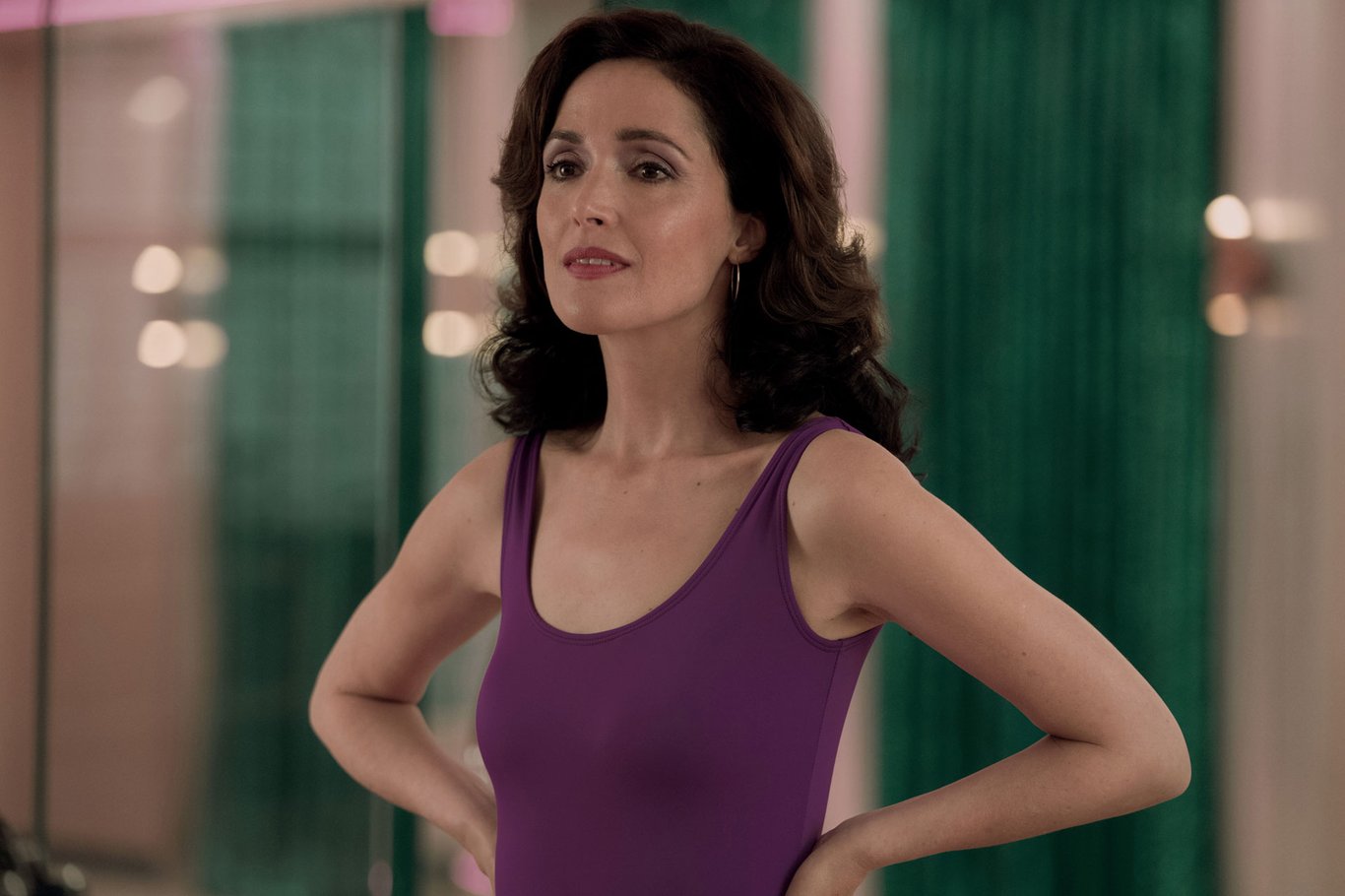
Rose Byrne
By: Alice Clarke
Rose Byrne has been in far more productions than you might realise.
Perhaps best known for her role in Bridesmaids, she’s been so successful in American film and TV shows that it’s easy to forget she’s a born and bred Aussie, and got her first big break alongside Heath Ledger.
Two Hands was only Byrne’s second film, but her portrayal of Ledger’s love interest, Alex, gained her a warm critical reception, and a friendship with Ledger who helped her when she went to try her luck in the US.
It was then Damages, a legal thriller she starred in alongside Glenn Close, that properly introduced her to the American TV audience and saw her nominated for a slew of acting awards.
As an actress she’s hard to pin down. While she might have carved out something of a niche in comedies in recent years, she’s been in everything from high art indie darlings, X-Men films, Troy (alongside Brad Pitt), horror movies like Insidious, the beloved historical drama Marie Antionette, the original Heartbreak High, and Bluey.
Throughout all this she has been guarded about her personal life, living mostly in New York with her partner, actor Bobby Cannavale, and their two sons.
While other actors are rushing to talk about how their method tortured them, or their characters helped them exorcise their own personal demons, Byrne has a healthier attitude to her work. “I’m not particularly interested in dredging up my own personal experiences,” she told a journalist from The Independent. “If the script is good, then it’s all there.”
What sets Byrne apart from many of her Hollywood contemporaries appears to be that she is simply too Australian to take herself or fame overly seriously.






























